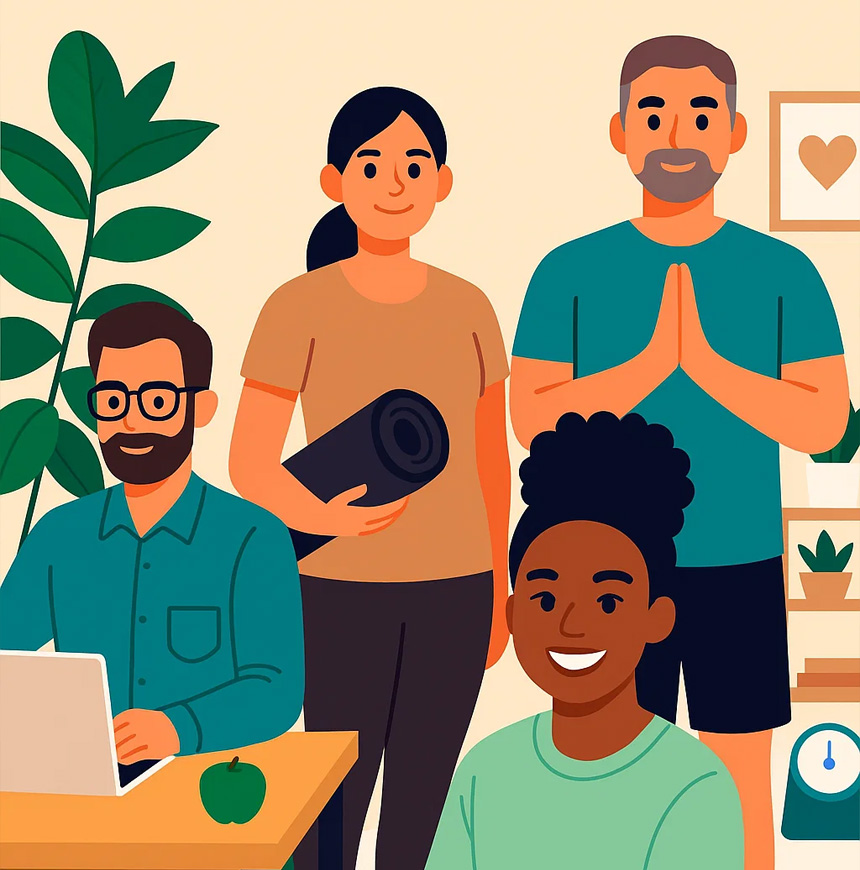 H
E
A
L
T
H
J
I
N
I
H
E
A
L
T
H
J
I
N
I
 H
E
A
L
T
H
J
I
N
I
H
E
A
L
T
H
J
I
N
I
 HealthJini – Your Wellness Partner for Life
HealthJini – Your Wellness Partner for LifeWelcome to HealthJini.com – where we believe health is not just insurance, it’s assurance. Whether you’re a business aiming to boost employee productivity through corporate wellness or an individual seeking lifelong health coverage and well-being, Jini is here for you. With years of expertise and a heart that listens, Jini curates health solutions that are personal, preventive, and purposeful.

At HealthJini, Jini is more than just a name. Jini symbolizes wisdom, empathy, and experience – a personal guide who understands that health is not just about treatment, it’s about transformation.
With over two decades of experience in healthcare and insurance, Jini understands the gaps in wellness and helps bridge them with care. Whether it's designing a corporate wellness plan or guiding someone to the right individual health policy, Jini offers solutions that are human-centric and result-driven.


We help you choose the right health insurance by understanding your medical needs, family structure, and lifestyle. Whether it’s individual, family floater, or top-up plans, our recommendations are tailored just for you. We focus on long-term value, not just premiums. With HealthJini, your health plan fits like a glove.
HealthJini acts as your personal guide during the claim process—right from documentation to follow-up. We assist you in avoiding delays and ensuring maximum claim settlement. Whether it's cashless or reimbursement, our support is just a call away. Your peace of mind during medical emergencies is our top priority.
Our curated wellness plans include preventive health check-ups, nutrition advice, fitness guidance, and mental well-being support. We go beyond insurance by helping you stay healthy every day. Members also get access to health tips, trackers, and expert consultations. Because prevention is better than cure—with HealthJini, wellness is a habit.
We design health solutions that cater to your team’s specific needs—be it group health insurance, wellness workshops, or telemedicine access. HealthJini ensures better employee engagement, productivity, and satisfaction. We simplify benefits administration and ensure compliance. Healthy teams build successful businesses, and we make that happen.
 Solutions
Solutions Boost employee engagement, reduce absenteeism, and foster a thriving workplace with HealthJini’s customized corporate wellness plans. Healthy employees build productive businesses.
See My Services